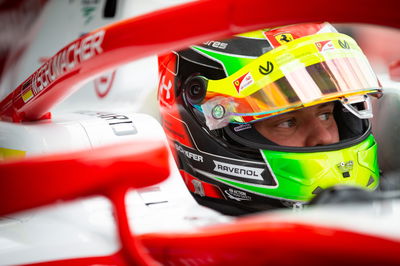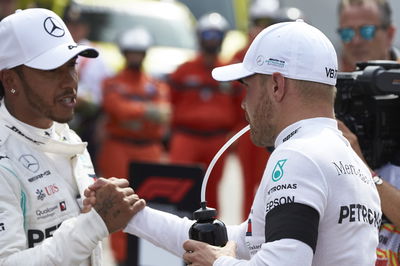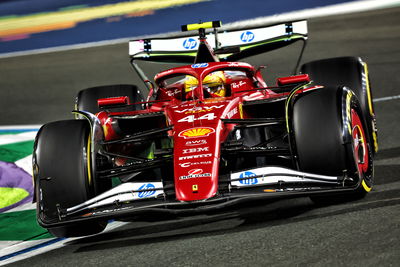German GP: What next for the future of F1 in Germany?
Formula 1 returns to Hockenheim this weekend for the German Grand Prix, but the future of the event beyond this year is unclear.
After Silverstone secured a fresh contract to retain the British Grand Prix, Germany is one of three races still shrouded in doubt, with Mexico and Spain also out of contract at the end of the 2019 season.
Germany hosted its first grand prix in 1926 and has held the event 77 times since at three different venues; the Nurburgring, AVUS and the Hockenheimring.
Here is a timeline of the key events so far…
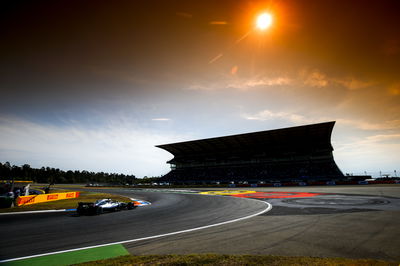
Formula 1 returns to Hockenheim this weekend for the German Grand Prix, but the future of the event beyond this year is unclear.
After Silverstone secured a fresh contract to retain the British Grand Prix, Germany is one of three races still shrouded in doubt, with Mexico and Spain also out of contract at the end of the 2019 season.
Germany hosted its first grand prix in 1926 and has held the event 77 times since at three different venues; the Nurburgring, AVUS and the Hockenheimring.
Here is a timeline of the key events so far…
July 2014: Hockenheim takes over from Nurburgring
After a number of years spent alternating between venues, a change of ownership for the Nurburgring circuit prompted Hockenheim to take over the running of the event.
Hockenheim was unable to host the race in 2015 or 2017, meaning it became a biennial grand prix on the F1 calendar.
Despite the heavy presence of German drivers on the grid, and the recent title successes of Nico Rosberg (2016) and the Mercedes team (2014-2018), the race struggled to attract big attendances, particularly in 2014.
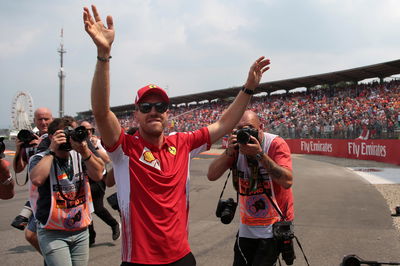
March 2018: Doubts over German GP future
In early 2018, Hockenheim’s CEO Georg Seiler warned that no new deal was in place to save the German Grand Prix, despite a positive relationship with F1 owners Liberty Media.
Ahead of the 2018 race, Ferrari’s Sebastian Vettel voiced his concerns regarding the event, adding he was “afraid” that F1 could end up losing “one of the classic races”.
Both Vettel and fellow countryman Nico Hulkenberg agreed that Vettel’s four successive titles between 2010 and 2013, coupled with Michael Schumacher’s dominance of the early-2000s, had left German fans “a little bit spoiled”.
August 2018: Mercedes-Benz sponsor boost
Hockenheim received a welcome boost late last year as Mercedes-Benz became the title sponsor to ensure the race kept its place on the calendar for 2019.
F1 chairman and CEO Chase Carey spoke of his delight to have retained the presence of an “iconic track” on the calendar in a deal he said “demonstrates how all stakeholders within Formula 1 are working together to ensure the long-term future of the sport and its fans.”
Sailer said the sponsorship deal was key in ensuring the race remained for 2019, though there was no further information given regarding the future of the event beyond the current season.
2018-2019: Addition of Vietnam and Dutch races
Germany’s hopes of securing a new deal faced a fresh blow when F1 announced a pair of new races for the 2020 F1 season and insisted it was keen to once again limit the calendar to 21 races.
An inaugural Vietnam Grand Prix, which will take place on the streets of the capital city of Hanoi, was confirmed in November, with the race set for a late April inclusion on the 2020 calendar.
That announcement was followed up by the news in May that the Dutch Grand Prix at Zandvoort will be revived in 2020 after a 35-year absence from the F1 calendar.
Vietnam is set to replace the Spanish Grand Prix as the opening European round of the 2020 season in a move which only further acts as a concern for Germany.
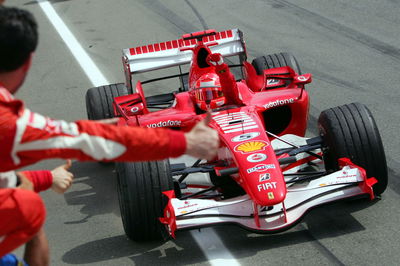
July 2019: 2020 start date fixed, but no provisional calendar
In early July, F1 confirmed that the 2020 championship season would begin in Melbourne on March 15th, which was shortly followed by confirmation that Silverstone had penned a new five-year deal to continue hosting the British Grand Prix until at least the end of 2024.
Usually by this stage of year, we have already had a provisional calendar released, but the full 2020 calendar has been delayed while F1 continues negotiations with a number of venues.
There have been some positive noises regarding the future of the Mexican Grand Prix, after initial doubts cropped up at the start of the year, while the Italian Grand Prix is closing on a deal to keep the iconic race at Monza until 2024 following a breakthrough in negotiations between the Automobile Club d’Italia and F1 back in April.
But there has been no news regarding Germany, which along with Spain, looks almost certain to be chopped from the calendar to make way for new events in Vietnam and the Netherlands.
What next?
Losing the German GP would act as a blow for the all-conquering Mercedes team - the benchmark in F1 during the V6 hybrid era - which heads into its home race this weekend looking to record a fourth consecutive victory at Hockenheim.
Germany has not been able to replicate the strong levels of attendance it enjoyed during the peak of Schumacher’s career at Ferrari, and its popularity has shown little sign of significantly improving in recent years.
Perhaps the return of the Schumacher name on the F1 grid would help boost figures, but with reigning European Formula 3 champion Mick Schumacher still finding his feet in Formula 2, that prospect seems a little while off at this stage.
In reality, unless something dramatically changes, we are set to lose the German GP for the foreseeable future…
